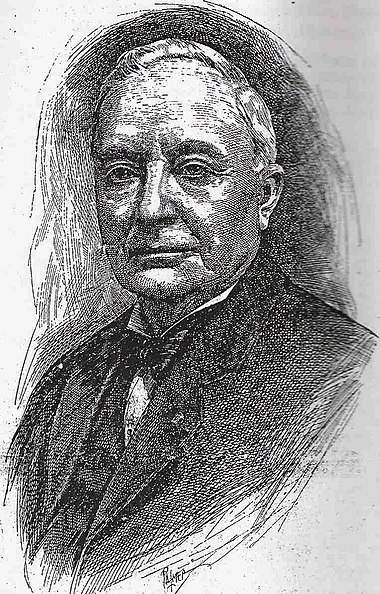RESIDENTS
Residents
Over 30,000 residents call Belmont Park Cemetery their place of eternal rest. Each individual laid to rest within our serene grounds contributes to the rich tapestry of history, memory, and legacy that defines our cemetery.
At Belmont Park Cemetery, we take great pride in maintaining meticulous records of everyone buried on our 30 acres. While many records are available on the popular search platform FindAGrave.com, not all of our residents are listed on the site. We encourage you to call or stop by our office if you cannot find the information you seek online. Our dedicated team is always ready to assist you in your search and provide any necessary guidance.
Our cemetery holds a wealth of history, dating back to 1903. Much of this information remains on paper interment records maintained in our card catalog located in the office. These records are crucial to our heritage and are preserved with the utmost care and respect.
Whether you are searching for a specific individual or exploring the stories held within our cemetery, we welcome you to visit us. We are honored to share the legacy of those who rest here and to support you in commemorating and honoring their lives.
Local Legends Buried at Belmont Park Cemetery
Within the hallowed grounds of Belmont Park Cemetery, an intimate tapestry of our community’s history unfolds, woven with the threads of lives that have lived and enriched our shared journey. Among our residents are some of the most esteemed local legends. Their legacies, preserved in the sacred tranquility of our cemetery, invite reflection and reverence. We are honored to be the custodians of their memories, offering a sanctuary where their stories continue to inspire and resonate with those who seek not just a resting place but a connection to the enduring spirit of our community.
Our famous local legends include, but are not limited to:

Joseph Butler
Joseph G. Butler Jr. (born in 1840, died in 1927) was a prominent American industrialist, philanthropist, and historian remembered for his pivotal role in the U.S. steel industry and his significant contributions to the community of Youngstown, Ohio. Besides his industrial ventures, which included the organization of the Ohio Steel Company, Butler’s legacy shines through his establishment of the Butler Institute of American Art in 1919, the first museum in the United States dedicated solely to American art. A true visionary and community leader, Butler’s philanthropic efforts included the National McKinley Birthplace Memorial in Niles, Ohio, dedicated to his friend, President William McKinley.

Harry Meshel
Harry Meshel (born in 1924, died in 2017) was a distinguished American Democratic politician renowned for serving as president of the Ohio State Senate and chairman of the Ohio Democratic Party. Born in Youngstown, Ohio, to Greek-American parents, Meshel had a notable career marked by legislative efforts in economic development, disability rights, and waste disposal. He played a pivotal role in securing significant funding for Youngstown State University. He was instrumental in the establishment of several educational programs across Ohio. Beyond his political achievements, Meshel contributed to the boxing community, helping to create the Ohio Boxing Commission. His legacy includes the naming of YSU’s Meshel Hall and numerous other honors reflecting his enduring impact on the state of Ohio.

George Poschner
George Poschner (born in 1919, died in 2004) was born in Youngstown, Ohio, and went to the University of Georgia. His good friend, Frank Sinkwich, secured him a football scholarship there. Poschner served in the United States Army during World War II, where he received the Purple Heart, Bronze Star, and Distinguished Service Cross. In 1945, Poschner participated as a lieutenant in the Battle of the Bulge, where he was seriously injured on enemy territory, leading to the loss of both of his legs and several fingers. His peers admired him as much for his military bravery and optimism as they did for his impressive football field achievements.
John D. Beeghly
With a heart deeply rooted in Youngstown, Ohio, John David Beeghly (born in 1921, died in 2005) exemplified the spirit of a committed resident and astute businessman. As the cherished son of the esteemed industrialist and philanthropist Leon A. Beeghly, John’s legacy is one of dedication and service. From 1967 until his passing, he held the esteemed positions of vice president and director at Standard Slag Co. and Stancorp Inc., guiding these entities with integrity and vision. His life’s work is a testament to his unwavering commitment to the betterment of his community and the lasting impact he has made. He is honored annually through the John D. Beeghly Fellows Program under the YSU Foundation; this is a paid fellowship working with the Ohio Small Business Development Center, Export Assistance Network, and the APEX Accelerator at YSU.
John H. Fitch
John H. Fitch (born in 1843, died in 1919 ) embodied the virtues of dedication and community spirit. From his humble beginnings working in a local grocery store at 15, John’s industrious nature saw him rise to part-owner by 1865. His vision and entrepreneurial spirit led him to expand into multiple business ventures, culminating in establishing the John H. Fitch Company in 1901. His success in the coffee trade, with his renowned Mocomo brand, left an indelible mark on Youngstown’s commercial landscape. Yet, it is perhaps his heartfelt generosity that is most remembered today. Fitch donated 8 acres of his farmland in 1915 to establish Austintown Centralized School, which later became Austintown Fitch School. He is also the namesake of the YMCA’s Camp Fitch. His benevolent donation in 1918 to secure a campsite on Little Beaver Creek, followed by his family’s continued support, has provided a sanctuary of joy and growth for countless souls.
